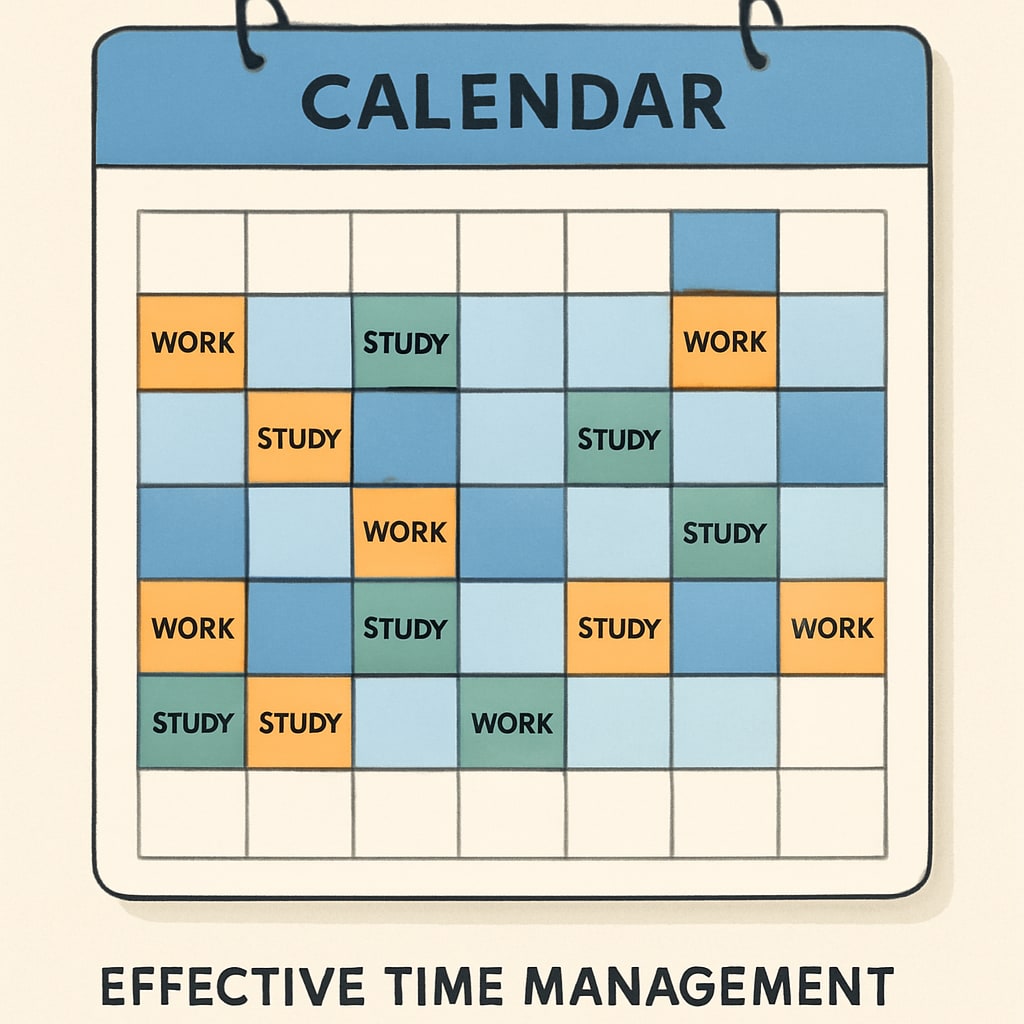Pursuing a master’s degree while navigating career growth and managing limited time is a daunting challenge for many mid-career professionals. As the demands of work and personal life increase, the pursuit of higher education often seems like a distant dream. However, the rewards of earning an advanced degree—such as enhanced career prospects, personal growth, and expanded professional networks—can make the effort worthwhile. This article delves into the challenges of balancing work and study, examines the value of a master’s degree for career development, and provides actionable strategies for effective time management.
The Dilemma: Balancing Work, Study, and Life
For professionals in their mid-career, the decision to pursue a master’s degree often comes with significant hurdles. These individuals typically face demanding job responsibilities, family obligations, and the need to maintain a work-life balance. Adding the rigorous demands of higher education into the mix can feel overwhelming.
One of the primary challenges is time management. Mid-career professionals must juggle multiple roles, leaving little room for intensive study sessions or coursework. For example, attending evening classes or completing assignments after a full day of work can lead to burnout. Additionally, the financial burden of tuition fees and the opportunity cost of time spent on education rather than career advancement can deter some from taking the plunge.

The Value of a Master’s Degree for Career Growth
While the challenges are significant, the benefits of earning a master’s degree are equally compelling. Advanced education can open doors to higher-level positions, increased earning potential, and specialized expertise. According to a study by the U.S. Bureau of Labor Statistics, individuals with a master’s degree earn approximately 18% more than those with a bachelor’s degree (source).
Moreover, a master’s degree can serve as a differentiator in competitive job markets. Employers often value the dedication and advanced knowledge that come with higher education. For professionals looking to pivot to a new industry or role, a master’s degree can provide the necessary credentials and skills to make the transition.
Beyond career benefits, pursuing higher education fosters personal growth. Engaging with academic material, networking with peers, and learning from experienced professors can enhance critical thinking, problem-solving skills, and intellectual curiosity.
Practical Strategies for Time Management
To successfully balance work, study, and personal life, mid-career professionals must prioritize effective time management. Here are some practical tips:
- Set Clear Goals: Define your objectives for pursuing a master’s degree. Whether it’s career advancement, skill enhancement, or personal fulfillment, having a clear purpose can keep you motivated.
- Create a Schedule: Use digital tools like calendars or time-tracking apps to allocate specific time blocks for work, study, and personal activities. Stick to your schedule to build consistency.
- Leverage Flexible Learning Options: Many universities now offer part-time, online, or hybrid programs designed for working professionals. These formats provide greater flexibility in managing your time.
- Seek Support: Communicate with your employer, family, and friends about your educational goals. They may offer support, such as flexible work hours or help with household responsibilities.
- Practice Self-Care: Avoid burnout by prioritizing physical and mental health. Regular exercise, sufficient sleep, and relaxation techniques can help maintain your energy levels.

Conclusion: Making the Journey Worthwhile
Pursuing a master’s degree as a mid-career professional is undoubtedly challenging, but it is not impossible. By carefully managing your time, leveraging flexible learning options, and staying focused on your goals, you can successfully balance the demands of work, study, and personal life. The rewards—both professional and personal—are well worth the effort.
As the famous saying goes, “Education is the most powerful weapon which you can use to change the world” (Nelson Mandela Foundation). For mid-career professionals, investing in education is not just about career growth; it’s a step toward self-improvement and lifelong learning.
Readability guidance: Short paragraphs and bullet points summarize key strategies. Transition words (e.g., however, moreover) ensure smooth flow. Complex ideas are explained concisely, with minimal passive voice.


